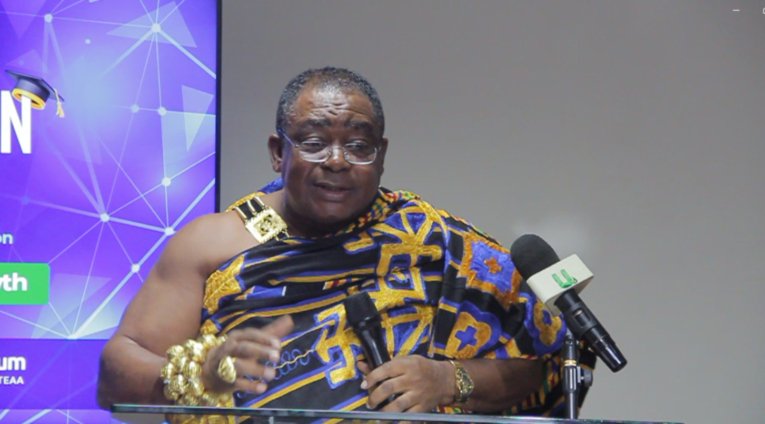Former GNCCI President Urges Greater Tech Investment to Strengthen National Security

A former president of the Ghana National Chamber of Commerce and Industry (GNCCI), Nana Dr. Appiagyei Dankwaso I, has called for a national policy shift towards deeper investment in technology, particularly in strengthening Ghana’s security architecture.
Speaking at the graduation ceremony of the Jackson Institute of Technology (JIT-TECH), held under the theme “Technology for Security and Growth”, Dr. Dankwaso stressed that technology must be viewed as a central pillar of both national development and long-term security.
“Technology is no longer optional—it is central to national survival and prosperity. We must invest deliberately and strategically, especially in areas that secure our nation and boost our competitiveness globally,” he said.
Dr. Dankwaso’s remarks come at a time when issues of cybersecurity, digital governance, and the integration of emerging technologies into defense and public safety have taken center stage worldwide. Ghana, like many other nations, faces the challenge of balancing digital transformation with safeguarding its critical infrastructure against cyber threats and other security risks.
Also addressing the gathering, Colonel Emmanuel Otu Seppey, Director of Defense Communications and Information Systems, echoed the call for stronger multi-sectoral collaboration in national security planning.
“Our security challenges are evolving rapidly. To respond effectively, we need robust partnerships between government, academia, and private tech innovators,” he said.
Colonel Seppey highlighted the importance of leveraging advanced technologies such as artificial intelligence, big data analytics, and secure communication systems as part of Ghana’s ongoing security transformation agenda. He warned that without such integration, the nation risks falling behind in a rapidly changing global security environment.
Analysts argue that calls from both business leaders and security professionals underscore a growing sense of urgency for Ghana to future-proof its systems. With the rise of cybercrime, digital espionage, and cross-border security challenges, investing in cutting-edge technology is increasingly seen as a prerequisite for sustainable development.
The Jackson Institute of Technology, which hosted the event, has been instrumental in bridging Ghana’s digital skills gap. Through its focus on training IT professionals and innovators, JIT-TECH aims to align academic output with the country’s broader development and security goals.
As Ghana continues to position itself in a technology-driven global economy, experts say a coordinated national strategy—anchored in innovation, security, and partnerships—will be critical to ensuring resilience and competitiveness in the years ahead.
Credit: Joy Business



